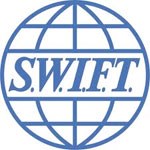
The mobile money sector is expected to grow from US$14bn this year to close to US$280bn by 2018‚ according to a study by global research group Markets and Markets.
The Tufts University study in Ghana‚ funded by SWIFT‚ showed after one month‚ 10% of participants had used the service solely for money transfer; two and half months later‚ usage increased to 26% of households‚ with 86% of users receiving money transfers and 70% of users saving on their mobile phone.
SWIFT said the results could provide a possible model for policy makers around the world to extend the reach of financial services. If mobile money services could help to improve financial inclusion in this way‚ such services could offer a crucial mechanism through which to address a stubborn problem that continued to hinder economic development‚ it said.
Jenny Aker‚ assistant professor of economics at the Fletcher School‚ Tufts University‚ said: "While these early findings are limited‚ the research suggests that simple interventions to alleviate the barriers to mobile money adoption can help to encourage its use for receiving remittances and as a saving mechanism. If further research supports these conclusions‚ mobile money could be an important mechanism for promoting financial inclusion."
Financial exclusion remains a serious problem across Africa. In the remote areas of sub-Saharan Africa‚ less than 20% of the population has access to any type of formal financial institution‚ defined as a bank‚ microfinance institution or co-operative. Yet access to financial services is a key aspect of development‚ as credit and savings allow households to invest and save.
In SA‚ despite a push to improve access to financial services via the Financial Sector Charter‚ financial exclusion has actually increased. According to FinScope‚ 27% of South African adults were financially excluded in 2011‚ up from 23.4% in 2010.
Typically‚ households in rural areas rely on remittances from migrants to urban areas‚ or save informally at home through local savings clubs. These savings groups have about eight million members in SA‚ and total savings of about R16bn. While these kinds of informal strategies are important risk-sharing mechanisms for poor households‚ they are also vulnerable to risks‚ including theft‚ restricted access to funds‚ high fees‚ or high transaction costs.
The research demonstrated that mobile money offered a new potential mechanism for increasing the financial inclusion of the world's poor.
First and foremost‚ since it can reduce the cost and increase the security of money transfers‚ mobile money can improve households' ability to share risk. Beyond money transfers‚ mobile money can also be used to create a secure "pseudo-savings" account‚ where individuals can deposit smaller savings amounts for more immediate needs.
As the "account" is password-protected‚ the mobile money savings channel could offer greater security than savings under the mattress and better access than that offered by the annual "share out" of savings clubs.
Increased network coverage and mobile phone ownership‚ as well as a growing number of mobile money services in many developing countries‚ including Ghana‚ would be crucial to the success of any mobile money-based financial inclusion strategy.
Therefore‚ a key element of the research was a set of positive steps to reduce barriers to the adoption and usage of mobile money in Ghana. These included the provision of some mobile phones‚ access to a mobile money agents‚ and a sensitisation campaign on mobile money. As a result of these simple interventions‚ the research found that rural populations' interest in adopting mobile money was extremely high.
The World Bank said last month that bringing remittance prices down to 5% from the current 12.4% average would put US$4bn more in the pockets of Africa's migrants and their families who rely on remittances for survival.
The G8 and the G20 established 5% as the target average remittance price to reach by 2014.
Africa's overseas workers‚ who sent close to US$60bn in remittances in 2012‚ pay more to send money home than any other migrant group.
According to the World Bank's Send Money Africa database‚ sub-Saharan Africa is the most expensive region to send money to‚ with average remittance costs reaching 12.4% in 2012.
This is higher than the global average of 8.96%‚ and almost double the cost of sending money to South Asia‚ which has the world's lowest prices at 6.54%.
SWIFT SA's chief executive Hugo Smit said last year that the high economic growth of sub-Saharan Africa excluding SA was reflected in the more than 20% growth of volumes in SWIFT transactions in this area over the past three years.

For more than two decades, I-Net Bridge has been one of South Africa’s preferred electronic providers of innovative solutions, data of the highest calibre, reliable platforms and excellent supporting systems. Our products include workstations, web applications and data feeds packaged with in-depth news and powerful analytical tools empowering clients to make meaningful decisions.
We pride ourselves on our wide variety of in-house skills, encompassing multiple platforms and applications. These skills enable us to not only function as a first class facility, but also design, implement and support all our client needs at a level that confirms I-Net Bridge a leader in its field.
Go to: http://www.inet.co.za